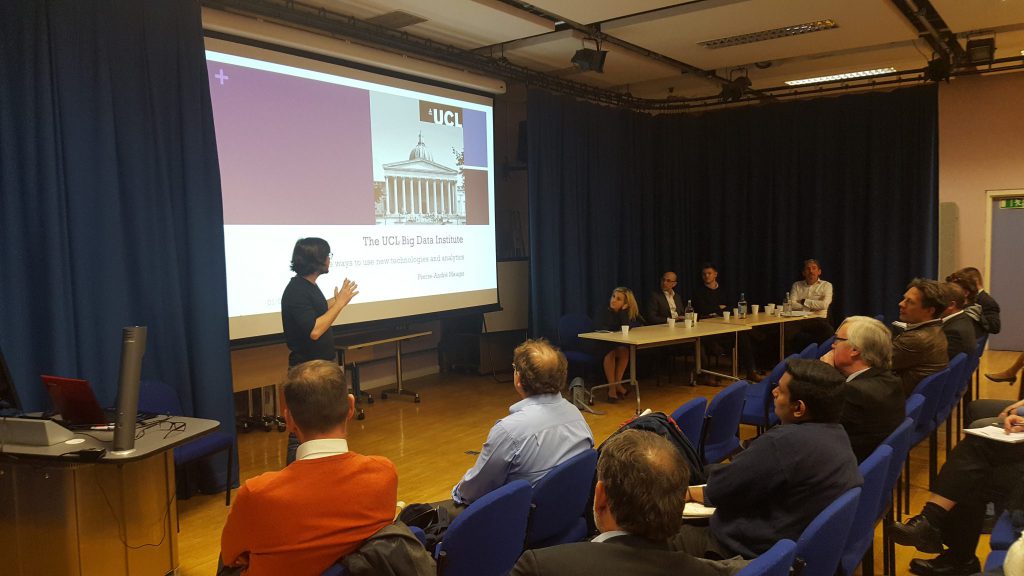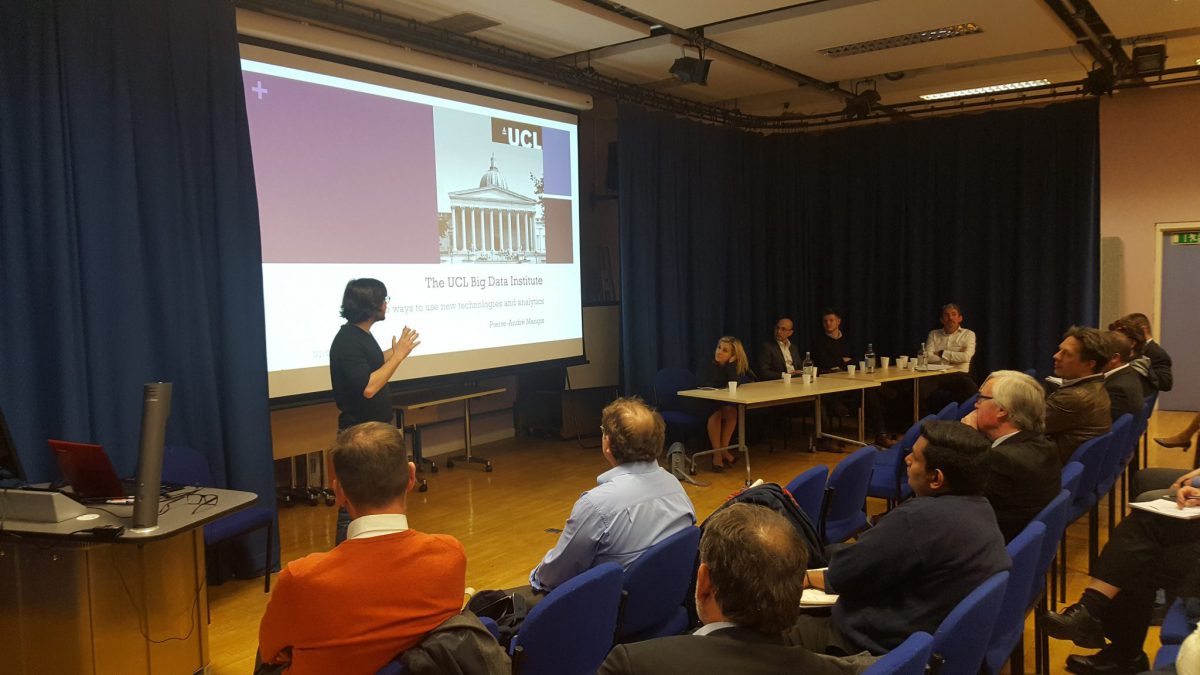By John O’Brien – Constructing Excellence Asset Management Theme Group Chair
On Wednesday last week Constructing Excellences asset management group met with UCL Centre for Data Science at UCL to discuss how to use big data to improve the performance of built assets, a very big issue to tackle in an afternoon!
I suspect like most people, I’ve regularly used the term big data without really taking the time to question deeply what this concept means. Surely, it’s self-evident, it’s data that’s big.
Well it’s more than that. Wikipedia helpfully defines “Big data” as a term for data sets that are so large or complex that traditional data processing application software is inadequate to deal with them. Challenges include capture, storage, analysis, data curation, search, sharing, transfer, visualization, querying, updating and information privacy. The term “big data” often refers simply to the use of predictive analytics, user behaviour analytics, or certain other advanced data analytics methods that extract value from data, and seldom to a particular size of data set. Analysis of data sets can find new correlations to “spot business trends, prevent diseases, combat crime and so on.” Scientists, business executives, practitioners of medicine, advertising and governments alike regularly meet difficulties with large data-sets in areas including internet search, finance, urban informatics, and business informatics. The range of both big and small data problems in the design, construction and operation of built asset is huge which implies there must be a huge opportunity for the application of big data techniques.
To address our question, we assembled four excellent speakers. Dr. Pierre-Andre Maugis of UCL Centre for Data Science, Paulina Zakrzewska of UCLH, Jack Clough of Spica Tech and Milesh Patel of ICONICS.
Dr. Pierre-Andre Maugis explained how organisation can explore and develop value from the information that already exists within their organisations. He explained that in his experience organisations need to have many conversations across teams, boundaries and disciplines to spot the opportunity to create new value for customers and businesses.
Paulina Zakrzewska described what she though big data might look like by the time she retires in 2045. She made the point that the volume of design, construction and operation data will continue to expand and she hopes to see an equivalent reduction in the variability of data. Such a trend would allow organisations that rely on real estate to function to extract much more value from their big data for operating both their built assets and organisations.
UCL and WLP presentations 26042017
Jack Clough of Spica Tech explained how his organisation is using the Internet of Things (IOT) to deliver smarter, more sustainable and resilient operational solutions for facilities managers, buildings and estates. Applications include smart cleaning, workspace utilisation and the monitoring of the health of water systems.
Milesh Patel of ICONICS described two case studies where his businesses use of data analytics has delivered tremendous value for real estate users. Their use of fault diagnostic rules has saved Microsoft Corp millions of dollars in energy and operational savings across their US campuses. The use of data analytics has improved the functionality and user experience for Accenture’s staff in their new office, The Dock in Dublin.
My recent experience of working with complex building and people data sets through Whole Life Performance Plus (WLP+) our Innovate UK and EPSRC supported project resonated with what our speakers shared. WLP+ is a project which is increasing existing workplace productivity by 10%, whilst reducing energy use by 30% by optimising the indoor environmental quality of workplaces. We have discovered that the combination of IOT with the application of data analytics offers a huge and typically untapped opportunity to improve organisational productivity and performance.
Our speakers stimulated much questioning and debate amongst our workshop audience and I will take away two key messages from the session, and our debate which are;
- we all have untapped value in the information within our organisations and businesses, we need to go and find it and
- the creative and intelligent application of data analytics and IOT will solve customer problems and create new opportunities and categories of services
Our next workshop is planned for 1.30pm, 12th July 2017, in central London when our group will be addressing “Integrating data systems”, how to improve to improve the performance of built assets by joining up data systems. Contact Colm Quinn or myself if you’d like to learn more about WLP+ or join us for what I am sure will be an equally stimulating and insightful session.


